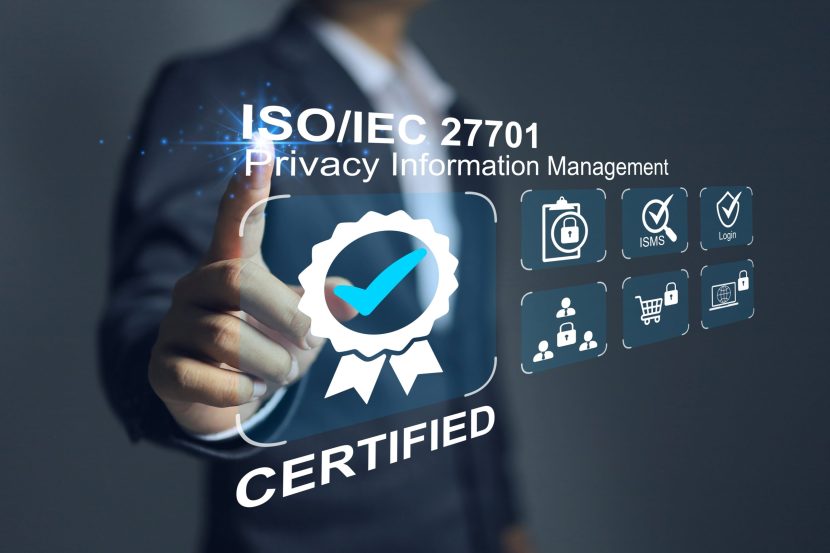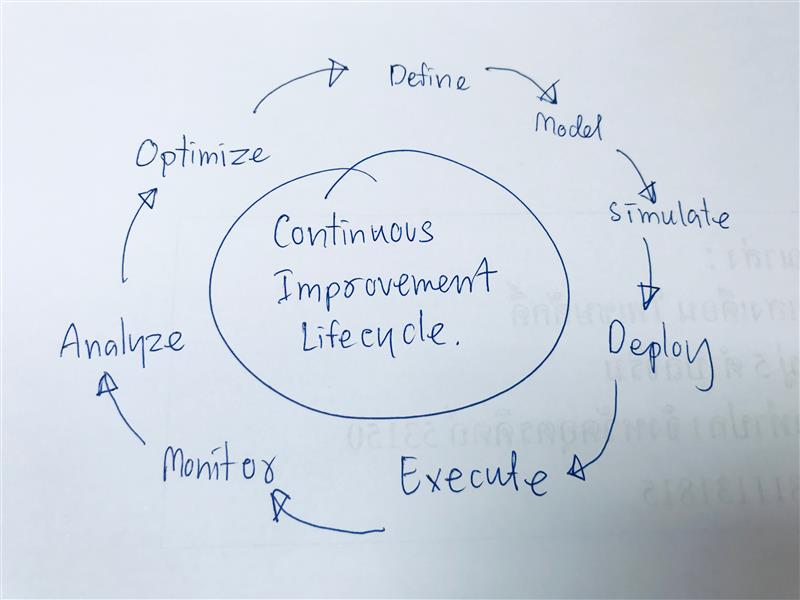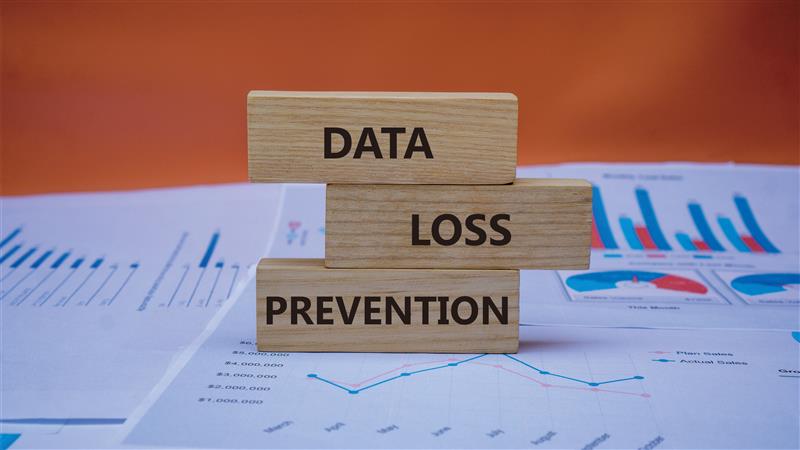Securing the Food Chain: How ISO/IEC 27001 Strengthens Cybersecurity
By Matthew Taylor
The food sector is increasingly utilizing innovative technological advancements, such as AI and cloud-based software. This has resulted in supply chains relying on digital tools and applications from farm to fork. However, with greater use of technology comes a greater risk of cyberattacks and information breaches.
In fact, the 2024 Ransomware Cyber Threat Report from the Food and Agriculture Information Sharing and Analysis Center (Food and Ag-ISAC) revealed a 118 percent spike in ransomware attacks targeting the food and agriculture sector in the fourth quarter of 2024 compared to the same period in 2023. Additionally, within the first few months of 2025, major brands such as WK Kellogg and Grubhub fell victim to cyberattacks, underscoring the risks to businesses, their employees, and their consumers.
As digital threats to food production and supply chains continue to grow, standards such as ISO/IEC 27001: Information Security Management can provide a critical framework for protecting organizations from cyber threats.
Cyber threats to the food industry
Cybersecurity breaches can disrupt key operations, while ransomware attacks can halt production and lead to data theft of proprietary recipes, prototypes, and processes. Impacts on one part of the supply chain can cause a domino effect and result in food quality and safety issues or, even worse, foodborne illness and contamination, causing injuries and requiring recalls. When these threats materialize, there are real-world consequences, such as production delays, compromises to food safety and sensitive supplier and customer information, financial losses, and reputational damage.
What is ISO/IEC 27001?
ISO/IEC 27001 was jointly published by the International Organization for Standardization (ISO) and the International Electrotechnical Commission (IEC). It is the world’s best-known standard for information security management systems (ISMS). It provides companies of any size from all sectors of activity with guidance for establishing, implementing, maintaining, and continually improving an ISMS.
ISO/IEC 27001 can help businesses become risk-aware while proactively identifying and addressing weaknesses. The standard uses a holistic approach, vetting people, policies, and technology to develop a strong ISMS.
When these threats materialize, there are real-world consequences, such as production delays, financial losses and reputational damage.
The ISO/IEC 27001 certification process
Once a solid ISMS has been implemented, a third-party auditor conducts a technical review to confirm that policies and procedures are properly designed. At this point, nonconformities or opportunities to improve the ISMS are identified.
The second stage of the audit is the certification audit, during which business processes and compliance controls are reviewed. The auditor will complete a detailed assessment to determine whether the organization satisfies standard requirements. If so, a certificate is provided and is valid for three years.
Within the three-year certification, ongoing audits must be conducted to ensure the program is still effective and being maintained. Surveillance audits check for new or existing nonconformities or exemptions.
During the third year of the three-year certification term, the organization can undergo a recertification audit, which involves a third-party auditor completing a detailed assessment to determine if the organization still meets ISO/IEC 27001 requirements.
Key Benefits for Food Businesses
Certification to ISO/IEC 27001 can help food businesses prioritize information security and ensure that their practices are on par with internationally recognized industry best practices. By utilizing a comprehensive ISMS, businesses can protect sensitive data, safeguard proprietary recipes and prototypes, secure automated systems, and protect customer, employee, and supplier information.
A strong cybersecurity program can offer an added layer of protection against cyber threats while providing a systematic approach to identifying and addressing vulnerabilities. It can also ensure improved business continuity in the case of a security incident or crisis.
Beyond the internal benefits, an information security certification can be used to demonstrate a commitment to data protection and security to customers and partners across the supply chain, offering a competitive advantage in the marketplace. It can also help organizations get started in complying with regulatory requirements.
Challenges and Best Practices
Third-party certifications always require an investment of time and effort. Food companies seeking ISO/IEC 27001 certification will need to form a dedicated team to prepare for the auditing process and ensure that the standard’s rigorous requirements are met.
Common obstacles may include needing to refresh legacy systems with limited or outdated security features, taking time to conduct employee training and increase internal awareness about cybersecurity, and resource constraints.
Businesses can confidently prepare for the certification process by leveraging practical implementation strategies. Some independent third-party organizations, such as NSF, work closely with organizations to assess both physical and logical cybersecurity environments.
Best practices for ISO/IEC 27001 certification include:
- Identifying and treating business risks
- Systematically examining the organization’s security risks using probability and impact assessments
- Building internal awareness of the information security program
- Providing a comprehensive international set of controls
- Aligning information security with overall business objectives
Through thorough risk assessment and mitigation, organizations can improve access control and monitoring systems, implement employee training, prepare incident response plans and integrate cybersecurity into existing food safety protocols.
What’s Next in Food Cybersecurity
Regulatory focus on digital security is growing, with more governments requiring security controls across the food supply chain. In the US, lawmakers recently reintroduced the Farm and Food Cybersecurity Act, which puts greater emphasis on cybersecurity in the agriculture and food sectors. Beyond regulatory drivers, customers and supply chains also expect more from producers and those along the ‘farm to fork’ pathway around managing sensitive data and protecting digital infrastructure.
Cyber threats will only continue to rise as technology becomes more widely adopted in the food sector. By seeking certification to a cybersecurity standard, businesses can be more prepared for the impacts a cyber-attack can have on their supply chain and consumers.
About the Author:
As Senior Manager – Food Consulting at NSF, Matthew Taylor manages teams dedicated to NSF’s mission to improve human and planet health around the globe. In 2021, he relocated from the UK to the US, where he now continues to provide leadership across NSF’s markets. Taylor has spent more than two decades working as an environmental health specialist and food safety expert. He has worked with multiple national and international retailers, foodservice and restaurant companies, distributors, hoteliers, and manufacturers.
Tony Giles, Director of Information Security at NSF, also contributed to this article.

-
 FeaturedRisk management
The Cost of a Breach: What a Cyberattack Could Mean for Food Safety Recalls
FeaturedRisk management
The Cost of a Breach: What a Cyberattack Could Mean for Food Safety Recalls
-
 FeaturedRisk management
Securing the Food Chain: How ISO/IEC 27001 Strengthens Cybersecurity
FeaturedRisk management
Securing the Food Chain: How ISO/IEC 27001 Strengthens Cybersecurity
-
 FeaturedRisk management
Revolutionizing Food Safety Training: Breaking Out of the “Check-the-Box” Mentality
FeaturedRisk management
Revolutionizing Food Safety Training: Breaking Out of the “Check-the-Box” Mentality
-
 GFSI Standards
GFSI 2025: Building Trust, Tech-Forward Solutions, and Global Unity in Food Safety
GFSI Standards
GFSI 2025: Building Trust, Tech-Forward Solutions, and Global Unity in Food Safety
-
 FeaturedFood Safety
Integrated Pest Management: Strategies to Protect Your Brand’s Reputation
FeaturedFood Safety
Integrated Pest Management: Strategies to Protect Your Brand’s Reputation
-
 FeaturedFood Safety Culture & Training
No Open Door Policy: Challenges That Impact Pest Control in Food Processing Plants
FeaturedFood Safety Culture & Training
No Open Door Policy: Challenges That Impact Pest Control in Food Processing Plants




